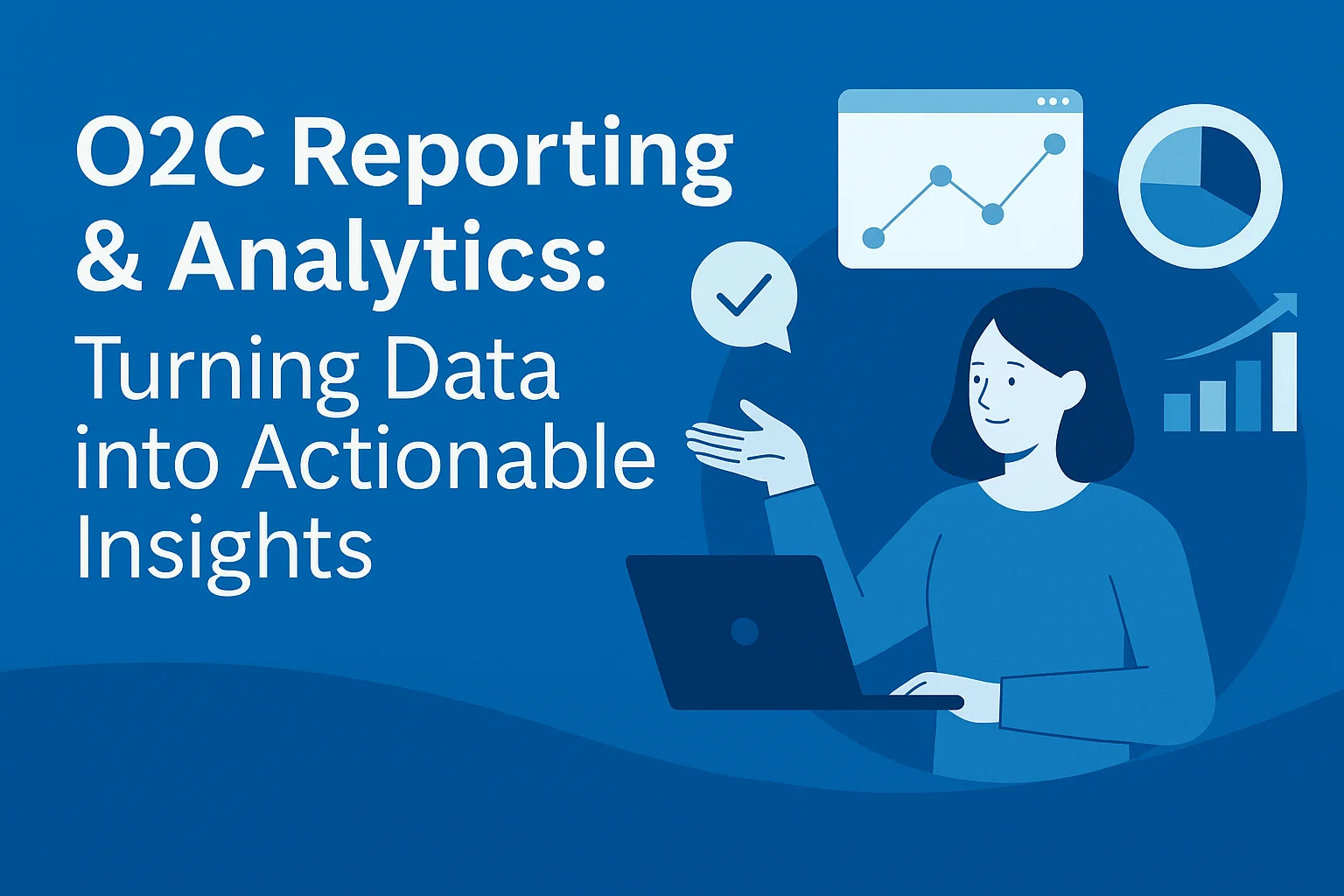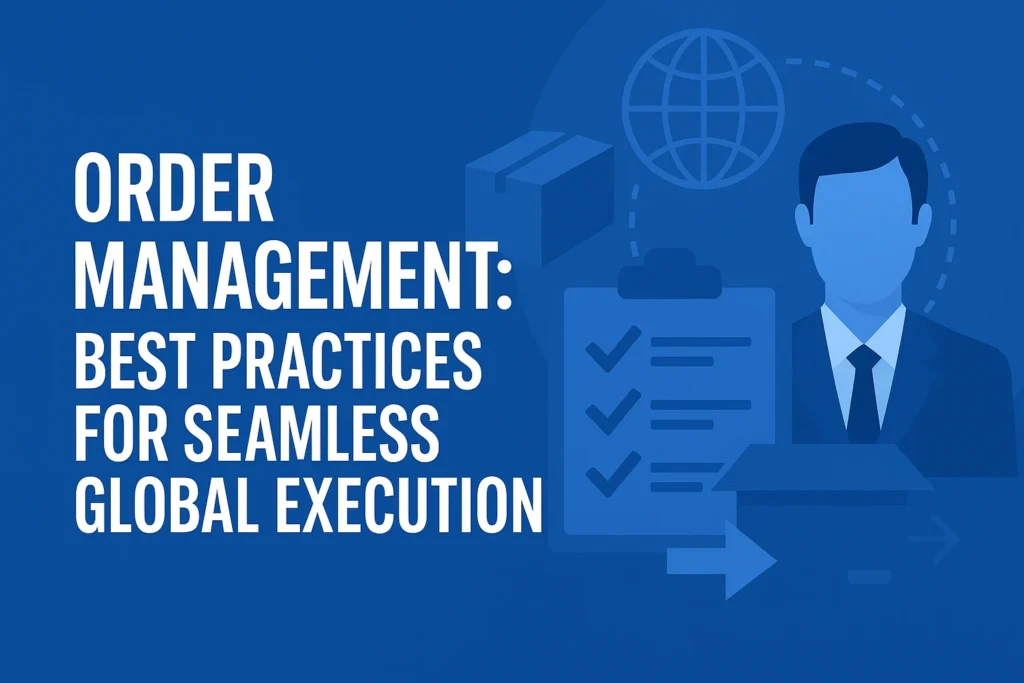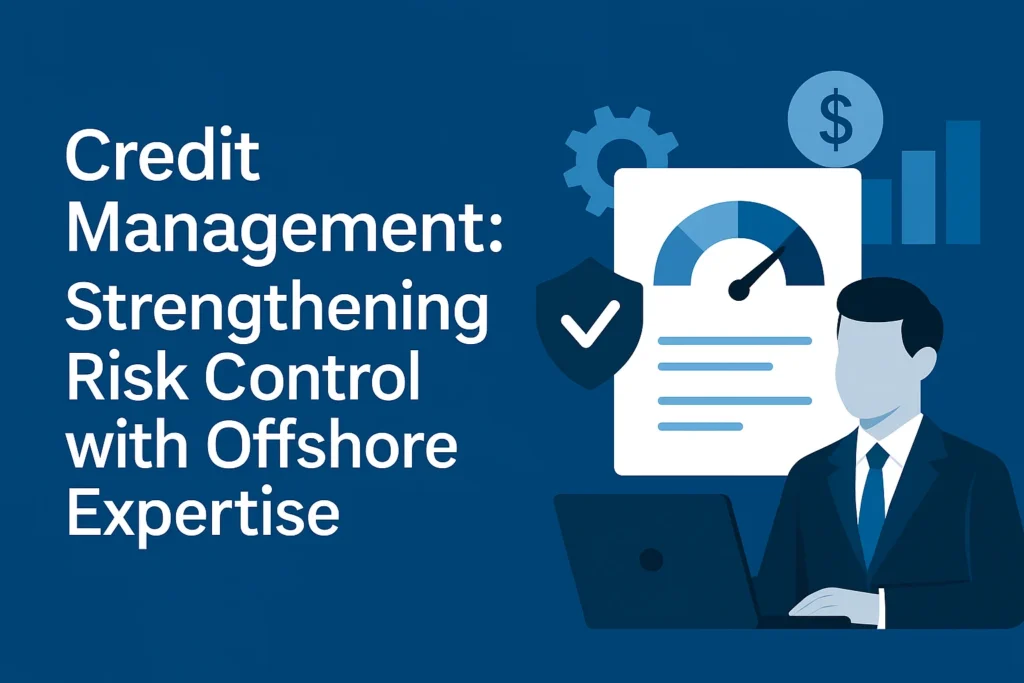The Order-to-Cash (O2C) cycle is one of the most critical processes for any business, directly impacting revenue, cash flow, and customer satisfaction. Yet, many organizations lack end-to-end visibility into their O2C process, making it difficult to identify bottlenecks, manage receivables efficiently, and predict cash flow accurately.
Offshore execution teams specializing in O2C reporting and analytics help businesses consolidate data, deliver real-time insights, and transform raw numbers into actionable strategies. In this blog, we explore how offshore O2C reporting and analytics can unlock better decision-making, improve working capital, and boost operational performance.
1. Gain a Complete View of the O2C Cycle
Most businesses deal with fragmented O2C data spread across sales, order management, finance, and customer service systems. This leads to blind spots, making it hard to track orders, invoice accuracy, and payment collections.
Offshore reporting specialists centralize O2C data by:
- Integrating data sources: Consolidating information from ERP, CRM, and billing systems.
- Standardizing reporting formats: Creating uniform templates for order status, collections, and disputes.
- Providing a single source of truth: Enabling leadership to view the entire O2C process in real-time.
This 360° visibility allows businesses to spot issues early and make informed decisions faster.
2. Improve Forecasting and Cash Flow Management
Cash flow planning relies on accurate projections of when invoices will be paid. Offshore analytics teams provide data-driven forecasting models, improving predictability.
- Payment trend analysis: Evaluating customer payment patterns to estimate future inflows.
- DSO (Days Sales Outstanding) tracking: Identifying customers or regions causing payment delays.
- Collections prioritization: Highlighting high-value overdue accounts for immediate follow-up.
With better forecasting, businesses can optimize working capital, reduce reliance on short-term financing, and improve liquidity.
3. Identify Process Bottlenecks and Inefficiencies
Delays in the O2C cycle often occur due to hidden inefficiencies, such as:
- Slow order entry or inaccurate data capture.
- Invoice generation errors leading to disputes.
- Lack of follow-up on overdue payments.
Offshore reporting teams build customized dashboards and KPIs to:
- Track order cycle time from receipt to fulfillment.
- Measure invoice accuracy and dispute frequency.
- Monitor aging buckets and collection effectiveness.
These insights help leadership pinpoint root causes and deploy targeted process improvements, accelerating revenue realization.
4. Strengthen Credit and Risk Management
O2C analytics is a powerful tool for proactive credit risk management. Offshore teams analyze customer behavior to:
- Flag high-risk customers with increasing overdue balances.
- Recommend credit limit adjustments based on data.
- Predict potential defaults before they impact cash flow.
Data-driven insights help finance teams make smarter credit decisions, balancing revenue growth with risk mitigation.
5. Enhance Compliance and Audit Readiness
Regulatory compliance and audit requirements demand accurate, transparent, and well-documented O2C reporting. Offshore teams ensure:
- Detailed audit trails: Recording every transaction, adjustment, and collection activity.
- Compliance reporting: Meeting IFRS, GAAP, and local accounting standards.
- Error reduction: Automated checks ensure data accuracy and completeness.
This not only supports internal controls but also builds stakeholder confidence in financial reporting.
6. Support Strategic Decision-Making with Advanced Analytics
Modern O2C analytics goes beyond dashboards. Offshore teams leverage advanced analytics and AI to:
- Forecast payment delays based on historical and market data.
- Model different scenarios for working capital optimization.
- Provide actionable recommendations for improving order policies, payment terms, and dispute management.
7. Free Up Internal Teams for Value-Added Work
Building in-house analytics capability is resource-intensive, requiring skilled data analysts and reporting tools. Offshore teams provide:
- Specialized expertise: Trained analysts experienced in O2C reporting across industries.
- Cost efficiency: Access to high-quality reporting at a fraction of onshore costs.
- Scalable support: Additional resources during high-demand periods or system migrations.
This allows your internal teams to focus on strategic finance, client relationships, and process transformation, instead of routine reporting.
Key Takeaway
O2C reporting and analytics provide the visibility and intelligence businesses need to accelerate cash flow, reduce risk, and enhance customer satisfaction. Offshore execution teams bring the tools, expertise, and scalability to manage data efficiently and convert it into actionable strategies.
By leveraging offshore support, companies gain real-time insights into their revenue cycle, improve forecasting accuracy, and make better, faster decisions, driving both operational excellence and long-term profitability.



